Sun, 30 December 2018
|
Mon, 24 December 2018
|
Sun, 16 December 2018
 Season 5 of The Simple Sophisticate podcast kicked off earlier this year in September. Just prior to beginning, I shared the schedule of the season (see below) so that listeners would know for sure which Mondays they could tune in to find new and inspiring content. But I must admit, as today approached, it was odd not to offer listeners something to begin their week (as only two new episodes were scheduled in December), so I have decided for the remaining three Mondays of 2018, to share with you the top downloaded episodes from previous seasons. Today, one of the top episodes from season #1 is shared - episode #23: The French Way - 20 Ways to Create a Luxurious Everyday. This particular episode was not only one of the top five episodes downloaded on iTunes during our first season, but it has since been viewed 7K+ on YouTube. You can view the complete list and links mentioned during the episode here, and as an update to the season's schedule, I will be airing a brand new episode of the podcast on TUESDAY January 1st! After all, it is the beginning of a new year, and I couldn't wait until the 7th to kick off the new month. So that means, you will have a top episode from the archives airing on Monday December 31st and the next day, Tuesday January 1st - a brand new episode to inspire you as you step into the new year. Wishing you a wonderful penultimate week before we say adieu to 2018. ~View the SHOW NOTES of EPISODE #23 (originally posted in February 2015) ~Listen/Read the Top podcast episode of all-time here - The 8 Pillars of A Simply Luxurious Life, episode #1 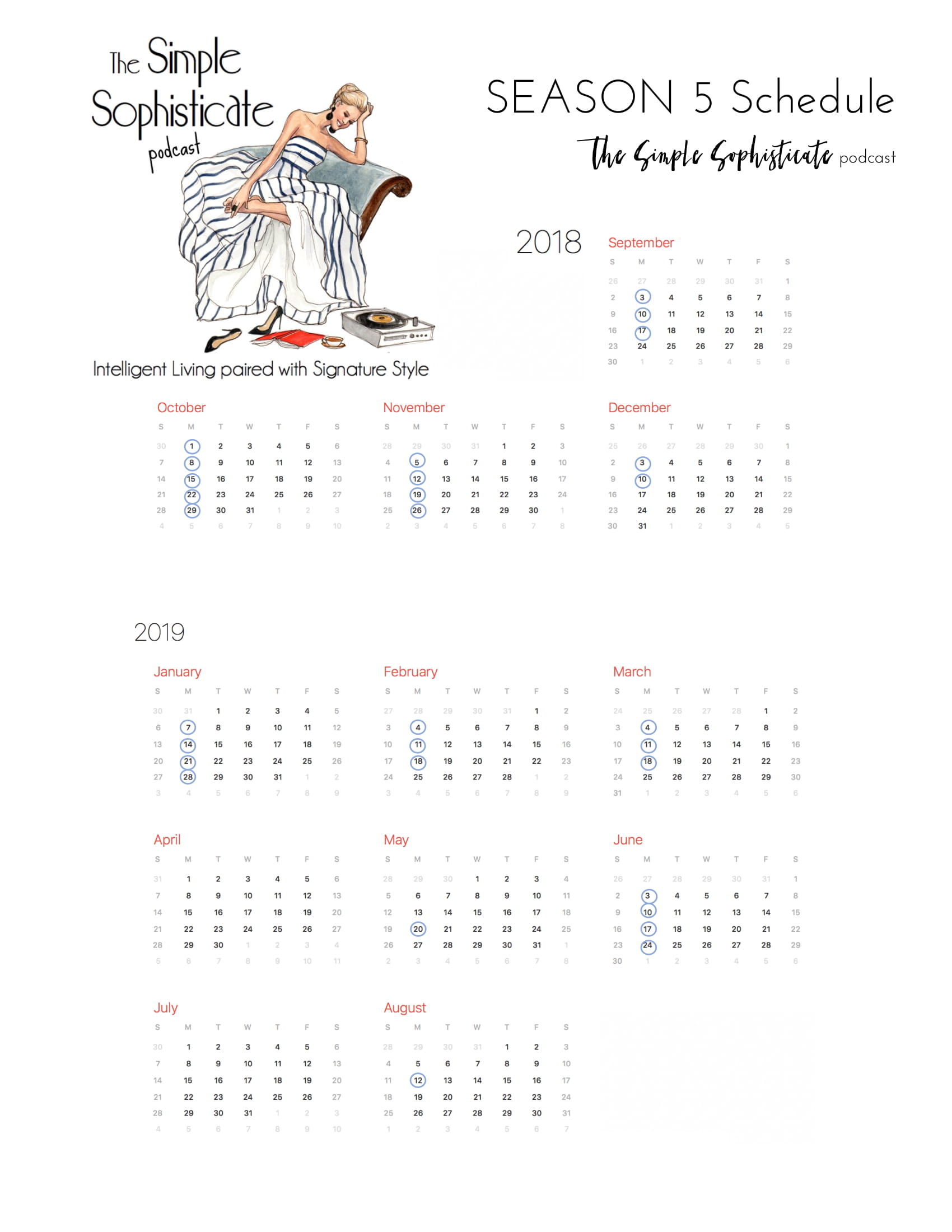 ~The Simple Sophisticate, episode #238~Subscribe to The Simple Sophisticate: iTunes | Stitcher | iHeartRadio | YouTube | Spotify |
Sun, 9 December 2018
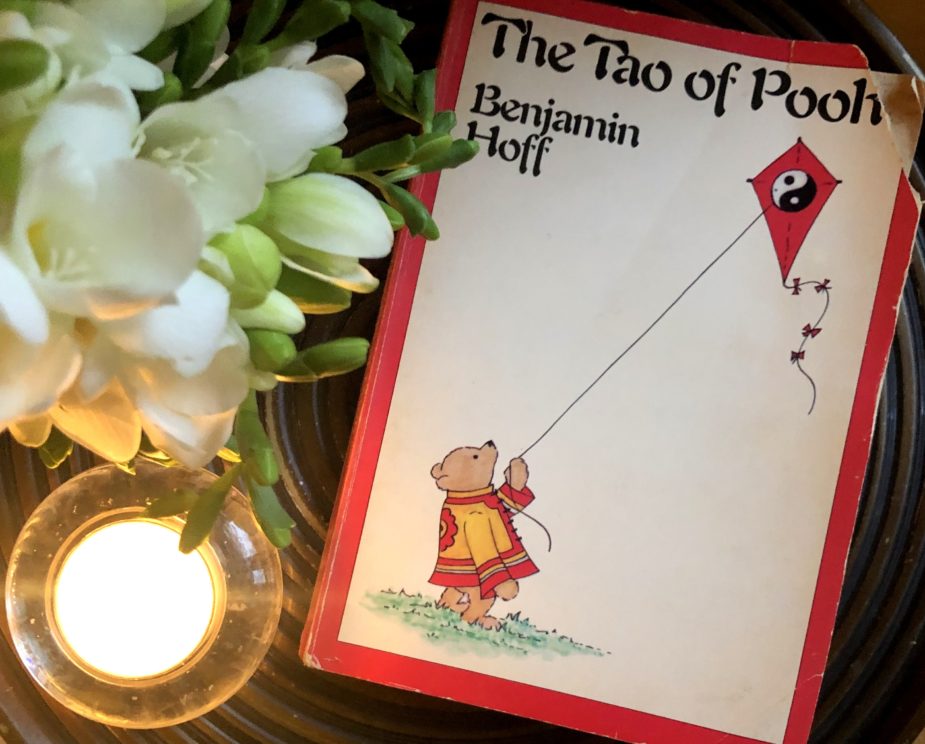 "Things in their original simplicity contain their own natural power, power that is easily spoiled and lost when that simplicity is changed." —Benjamin Hoff, author of The Tao of Pooh ~Below is a list of the life lessons shared on today's podcast episode. For detailed conversation about each point, be sure to listen to the audio version as Shannon elaborates on each point. ~Correction 12/11/2018: The copyright of The Tao of Pooh is 1982. The copyright of The Adventures of Winnie the Pooh is 1926. ~The Simple Sophisticate, episode #237 The written character P’u (pronounced Pooh) is defined as natural, simple, plain, honest. This basic Taoist principle not only applies to things, but to people too 1.Find what you can uniquely give the world "The Way of Self-Reliance begins with recognizing who we are. Each of us has something special hidden inside somewhere. But until we recognize that it’s there, what can we do but splash around, treading water? The first thing we need to do is recognize and trust our own Inner Nature, and not lose sight of it." P. 65 2.Life can be truly fun, no matter what your age “When you discard arrogance, complexity, and a few other things that get in the way, sooner or later you discover that simple, childlike and mysterious secret known to those of the Uncarved Life: Life is Fun.” Cleverness has its limitations. It’s mechanical judgments and clever remarks tend to prove inaccurate with passing time, because it doesn’t look very deeply into things to begin with. P37 3. Just be yourself, embrace your awesome "When you know and respect your inner nature, you know where you belong." "Cottleston Pie - a way of saying inner nature. No two people are the same either. Everything has its own inner nature. Unlike other forms of life, though, people are easily led away from what’s right for them, because people have brain and the brain can be fooled. But many people do not look at it or listen to it, and consequently do not understand themselves very much. Having little understanding of themselves, they have little respect for themselves, and are therefore easily influenced by others. "P. 57 4. The change you want does not exist outside of yourself "Real progress involves growing and developing, which involves changing inside." 5. Be patient on your journey "No matter how useful we may be, sometimes it takes us a while to recognize our own value." p. 117 6. Being an optimist will serve you well "The play-it-safe pessimists of the world never accomplish much of anything, because they don’t look clearly and objectively at situations, they don’t recognize or believe their own abilities, and they won’t stretch those abilities to overcome even the smallest amount of risk." P. 122 "Wisdom, Happiness, and Courage are not waiting somewhere out beyond sight at the end of a straight line; they are part of a continuous cycle that begins right here . . . it's sometimes referred to as the Snowball Effect, which can remind you of the time you pushed that little ball of snow along, and it got bigger and bigger until it got so big you couldn't stop it . . . now the principle can work negatively or positively. It can promote cynicism as easily as it can encourage hope . . . the important thing is to make it work for yourself and for the benefit of others." 7. Discover the Power and Opportunity for Rejuvenation with Time Spent with Yourself "Music is the space between the notes - emptiness cleans out the messy mind and charges up the batteries of spiritual energies - Loneliness actually begins when all the spaces are full and the tv gets turned on to make it go away. The power of a clear mind is beyond description." ~SIMILAR POSTS/EPISODES from the ARCHIVES YOU MIGHT ENJOY: ~How to Live Alone Well, episode #33 ~15 Everyday Habits to Live a Life of Contentment, episode #93 ~Authenticity: The Courage to Be Yourself, episode #6 ~TSLL's New Book - Living The Simply Luxurious Life: Making Your Everydays Extraordinary and Becoming Your Best Self (released November 13, 2018) ~Learn more about TSLL's Weekly Newsletter The Simple Sophisticate podcast, Season 5 Schedule
Petit Plaisir: ~The Marvelous Mrs. Maisel, Season 2 (especially episode 2 as it is set in Paris) 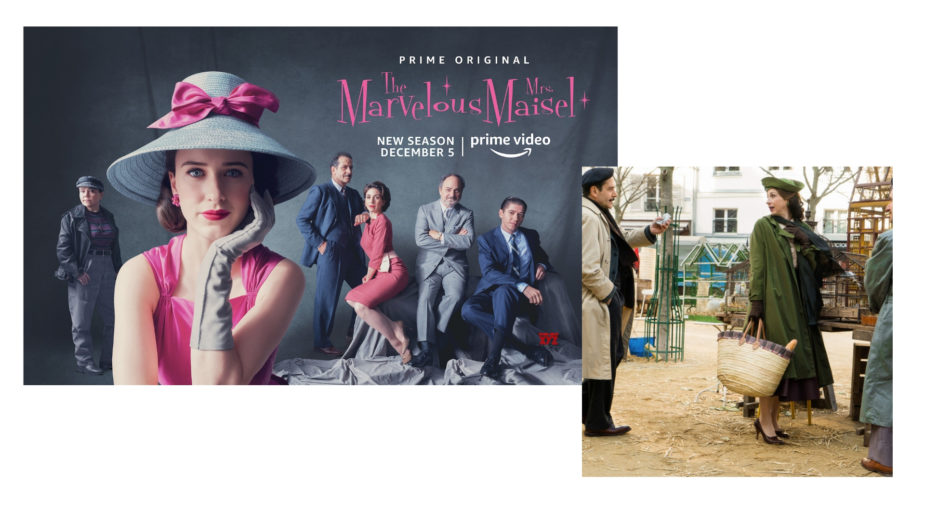
|
Sun, 2 December 2018
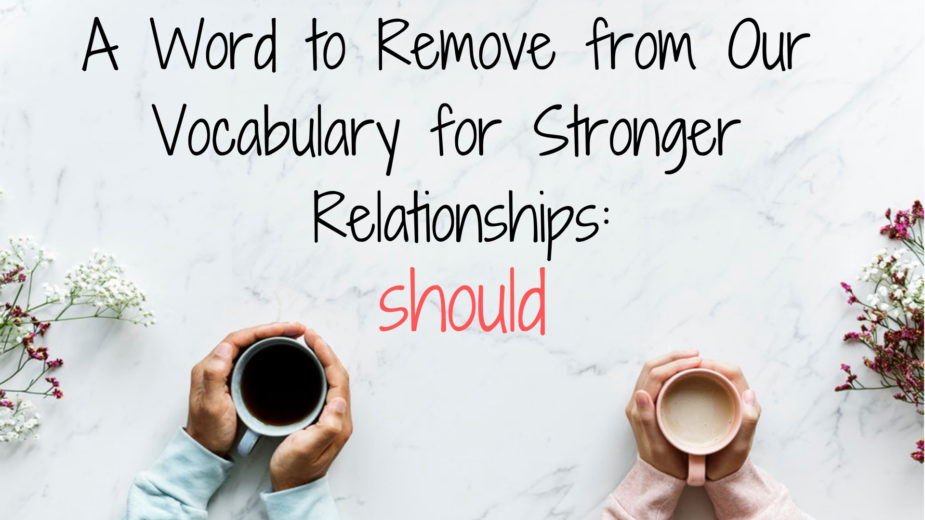 "You should read this." "You should do this." "You shouldn't be wasting your time doing . . . " Over the past couple years I have been wrestling with the uncomfortability that piques me any time a friend, family member or even complete stranger states something including the word "should" in the declaration. And after much grappling, I discovered the root of my uneasiness each time the word would be stated/written with such ease from a speaker. Rather than motivating or inspiring one to act in a particular manner, it was dictating. The strength of a civilized society is how well it effectively communicates. Defined by Livestrong, effective communication is the act "of sharing information, thoughts and feelings . . . through speaking, writing or body language to require that transmitted content [be] received and understood by someone in the way it was intended". The gift of a free society, of a democratic society, is that the people have choices of what they will or will not do. And while, arguable, yes, having what often feels like infinite choices can be numbing, inspiring us to choose either the easy route or no route at all due to paralysis, we do have a choice. Because we have choices about who we build friendships with, who we choose to share our hearts with, and how we choose to build our lives, once we recognize that letting go and refraining from telling others how to live is a pillar for stronger, healthy relationships, we no longer are cowed into being dictated to by those who know no other way to lead or direct. In our modern society, when we eliminate "should" from our vocabulary, we not only strengthen our relationships, we convey respect to others and their journey as well as our own. How? Let's take a look at benefits of letting go of the word "should" from our everyday conversations with others and ourself. When we refrain from using the word "should" (also, should not) in our vocabulary . . . 1.We exemplify our open-mindedness When we don't have expectations regarding how others "should" act, we communicate nonverbally, that there are many different ways for people to live. Simply because someone goes about life differently than we do, does not mean it is wrong. It is merely different. Ultimately, by not using the word "should", we open the door for further communication so that more understanding of both sides can be brought forth. 2. We communicate responsibility for our life journey Not only is using "should" unhelpful for our relationships with others, it is also disastrous for the relationship we have with ourself. When we tell ourselves what we "should" be doing, we are implying judgment upon our actions, as if we do not have control - when we know cognizantly we absolutely, we do have control. A better approach to this unhelpful default of how we communicate with ourselves is, as was shared on Tiny Buddha, is to remind ourselves of the benefits of the behavior we would like to practice, but is more difficult to perform. As well, by reminding ourselves of the characteristics we wish to project to the world and the values that are important to us, it becomes easier to do what we know would be best to live the life we love living. 3. We reduce destructive self-criticism In episode #122 (Why Not . . . Have Self-Compassion?), I shared in detail the benefits of reducing or eliminating self-criticism in order to improve the overall quality of our lives. After all, how we treat ourselves is how we allow others to treat us, so when we show ourselves respect, we headline to the world that we know and believe ourselves to be deserving of respect. 4. We become honest observers of our lives (emotions, actions, etc.) and navigate them healthily for positive growth Writer Hannah Braime shared honestly that when she would feel jealous or angry, she would beat herself up verbally for feeling said feelings. In actuality, she discovered that instead of ignoring them, she needed to explore them, in order to better understand herself and how she engaged with the world around her. In so doing, we learn, we become students of life, and enable real growth to occur. 5. We celebrate the vast goodness, rather than moan when our narrow and limiting expectations were not met As I shared in a recent KATU segment on the keys to contentment, the difference between having expectations (which includes using the word "should") and hope (keeping an open mind) is that we are better able to see all the awesomeness that surrounds us. The analogy I used was expectations is akin to viewing life through a peep hole (narrow), versus viewing life through a house that has floor to ceiling windows and walls - wide open. 6. We shift our outlook to being positive, rather than looking for the problems, the hiccups, the one detail that just isn't right in our minds By choosing to keep an open-mind, we see more, we come to understand there is far more goodness and awesomeness than we may have initially believed because we are not drilling down and solely focusing on that one singular behavior, outcome, etc. 7. We and others we work with and around become more productive Inspired workers, inspired people are more engaged, filled less with fear and thus have more energy to produce good work. Fear cultivates stress, stress expends energy, and that is energy that can be used for positive progress rather than gently walking a tightrope trying to figure out what we are supposed to do to avoid the wrath of our boss, our colleague, our partner, our friend, our parents, etc. 8. We begin to be inspired to work and tend to tasks that are on our to-do list, rather than doing them with dread or displeasure. Changing the way we think and speak, eliminating the "should", is a shift, and for most of us, a big shift, that will take time. But if we are only living in such a way because we think we "should", we are not living well. We want to live our everydays with purpose, but also contented engagement. Knowing why we are doing anything is a simple way to provide motivation rather than dread. When we have purpose for what we are doing, we can engage with an uplifting and happy disposition, rather than just trying to complete something in order to get it done. Writer Jack Ninivaggi points out that when we look at the word "should" as it is defined, we can better understand how destructive using it in our everyday language can be: "Verb: 1. used to indicate obligation, duty, or correctness, typically when criticizing someone's actions." Approaching a conversation that aims at seeking change is less likely to be effective when the tone is critical. As noted initially, inspiring action yields more of the results we seek more often. The words we use are powerful, and as has been discussed on the blog and podcast before, sometimes we get into defaults that are not positively enhancing our lives. Check your dialogue and how you speak to those you love - which includes yourself. Are you inspiring or dictating? If you are doing the latter, perhaps that is why some relationships have peetered out or are not as strong as you would like. And if you have embodied the former, keep up the practice as it is a habit that while seemingly insignificant, can truly life changing. ~SIMILAR POSTS/EPISODES FROM THE ARCHIVES YOU MIGHT ENJOY: ~Why Not . . . Cultivate Contentment Today? ~One Small Adjustment Away from Contentment ~Learn more about TSLL's Weekly Newsletter Petit Plaisir: ~A Simply Luxurious Holiday Playlist ~TSLL's 2018 Holiday Gift Guide ~Chocolate Almond Praline Cookies (a Petit Plaisir from #183)  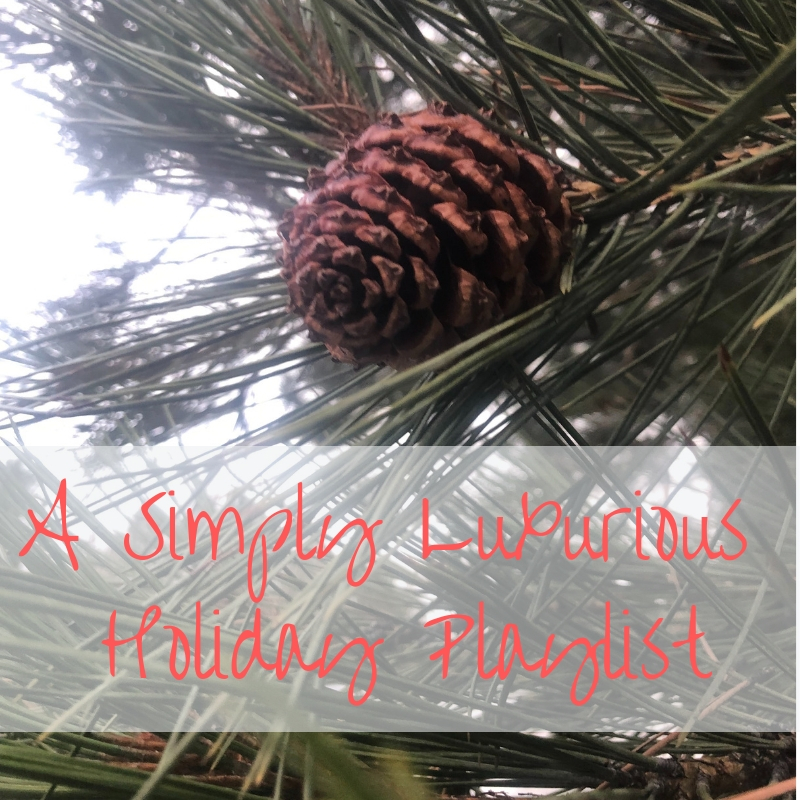 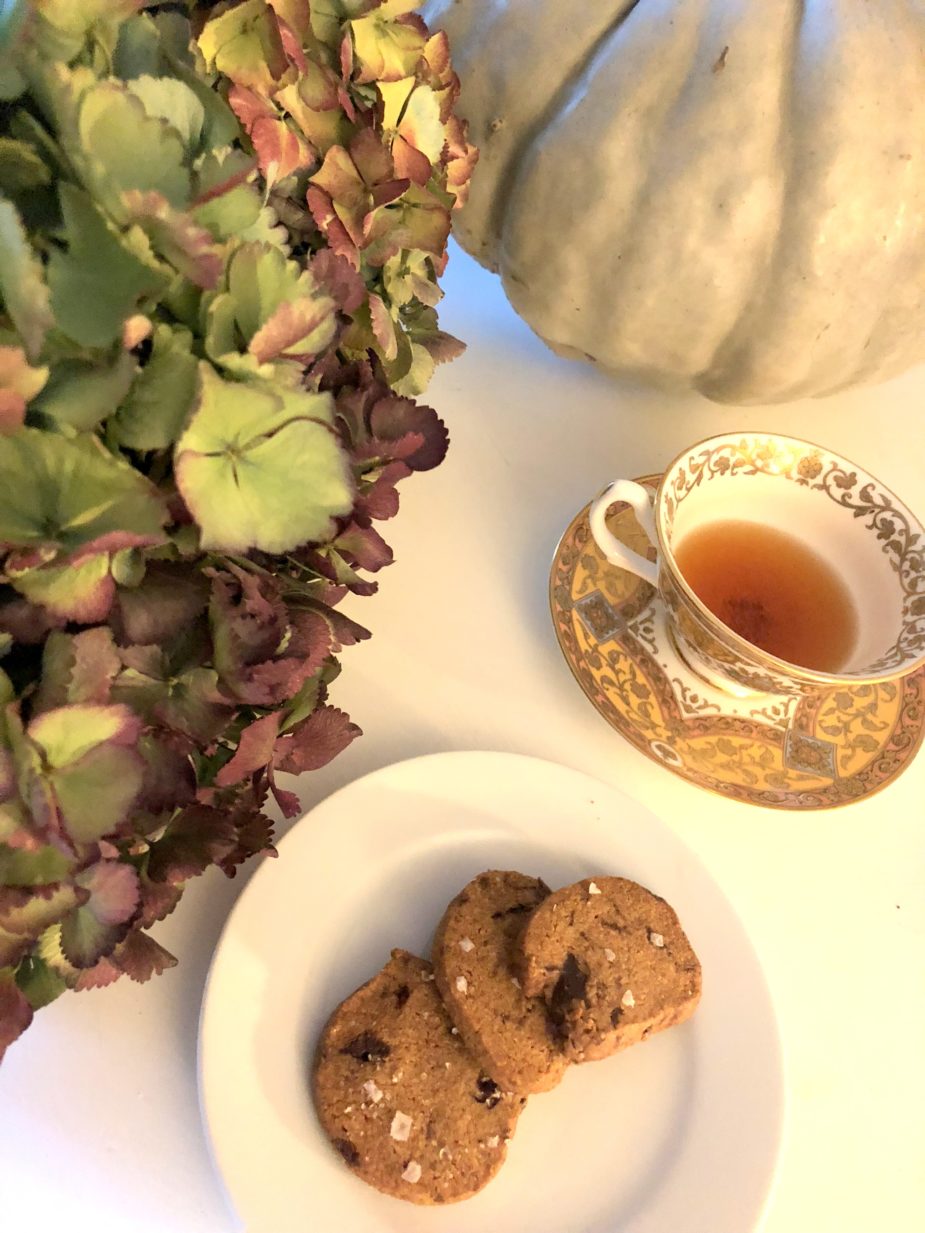
|
The Simple Sophisticate - Intelligent Living Paired with Signature Style

Categories
lifestylemoney
fashion
general
food
relationships
beauty
holidays
style
decor
etiquette
technology
dating
clothing
news
happiness
health
finances
self-help
feminism
french living
communication
inspiration
self-improvement
cooking
French-inspired
podcast
travel
entertaining
Archives
AprilMarch
February
January
December
November
October
September
August
July
June
May
April
March
February
January
December
November
October
September
August
July
June
May
April
March
February
January
December
November
October
September
August
June
May
April
March
February
January
December
November
October
September
August
July
June
May
April
March
February
January
December
November
October
September
August
July
June
May
March
February
January
December
November
October
September
August
July
June
May
April
March
February
January
December
November
October
September
August
July
June
May
April
March
February
January
December
November
October
September
August
July
June
May
April
March
February
January
December
November
October
September
August
July
June
May
April
March
February
January
December
November
October
September
August
| S | M | T | W | T | F | S |
|---|---|---|---|---|---|---|
| 1 | ||||||
| 2 | 3 | 4 | 5 | 6 | 7 | 8 |
| 9 | 10 | 11 | 12 | 13 | 14 | 15 |
| 16 | 17 | 18 | 19 | 20 | 21 | 22 |
| 23 | 24 | 25 | 26 | 27 | 28 | 29 |
| 30 | 31 | |||||
Syndication

